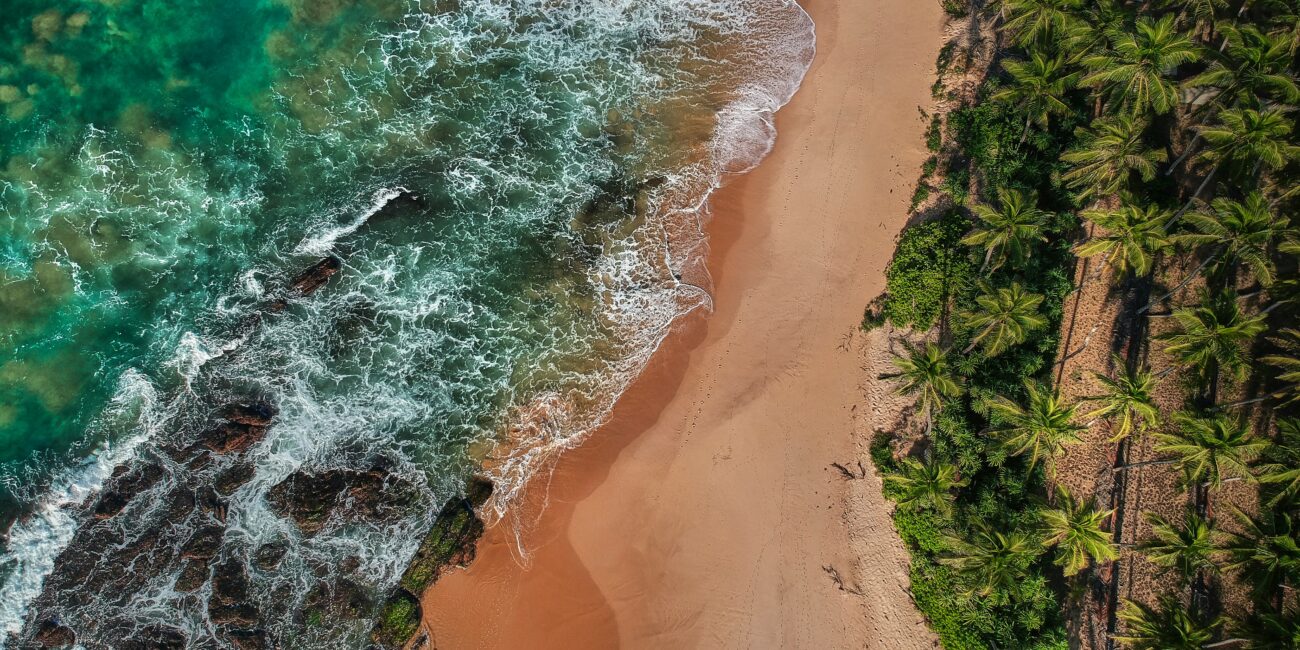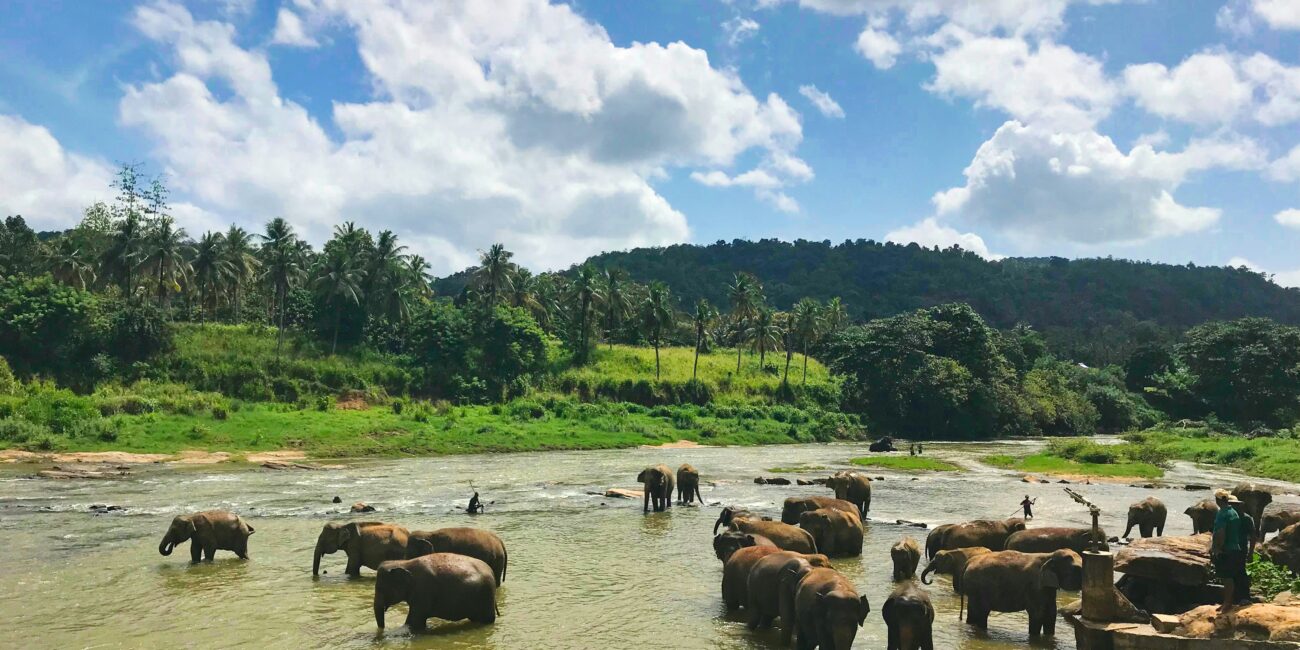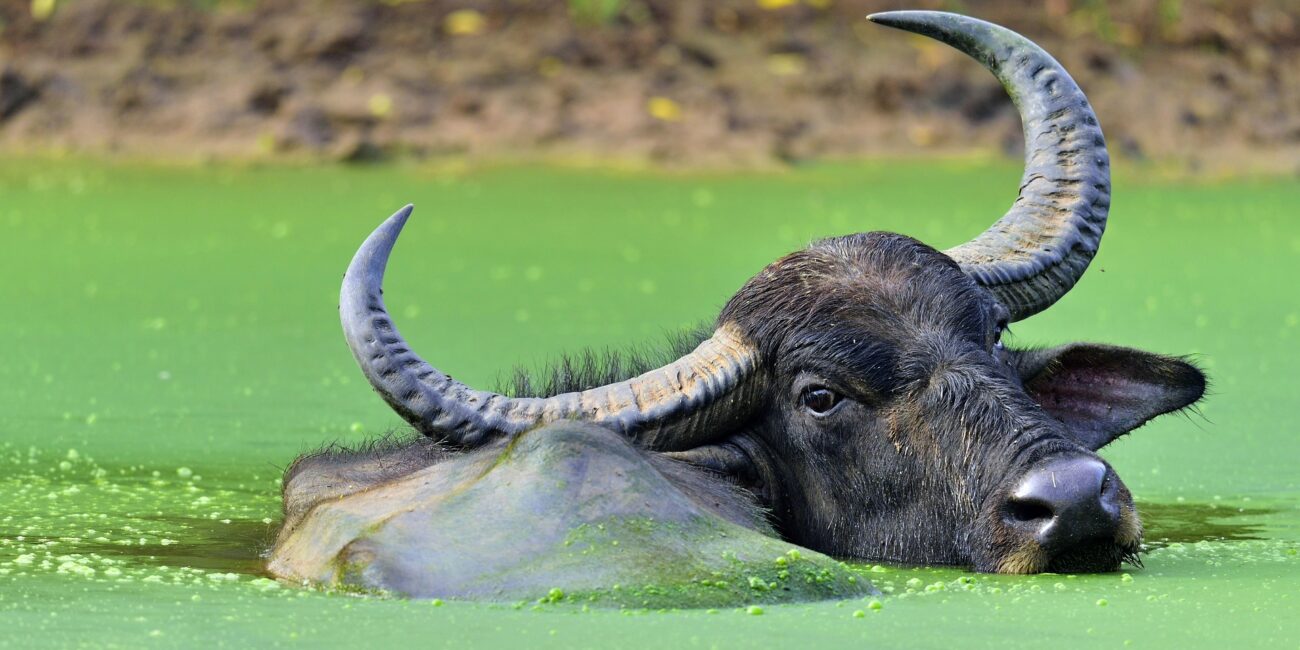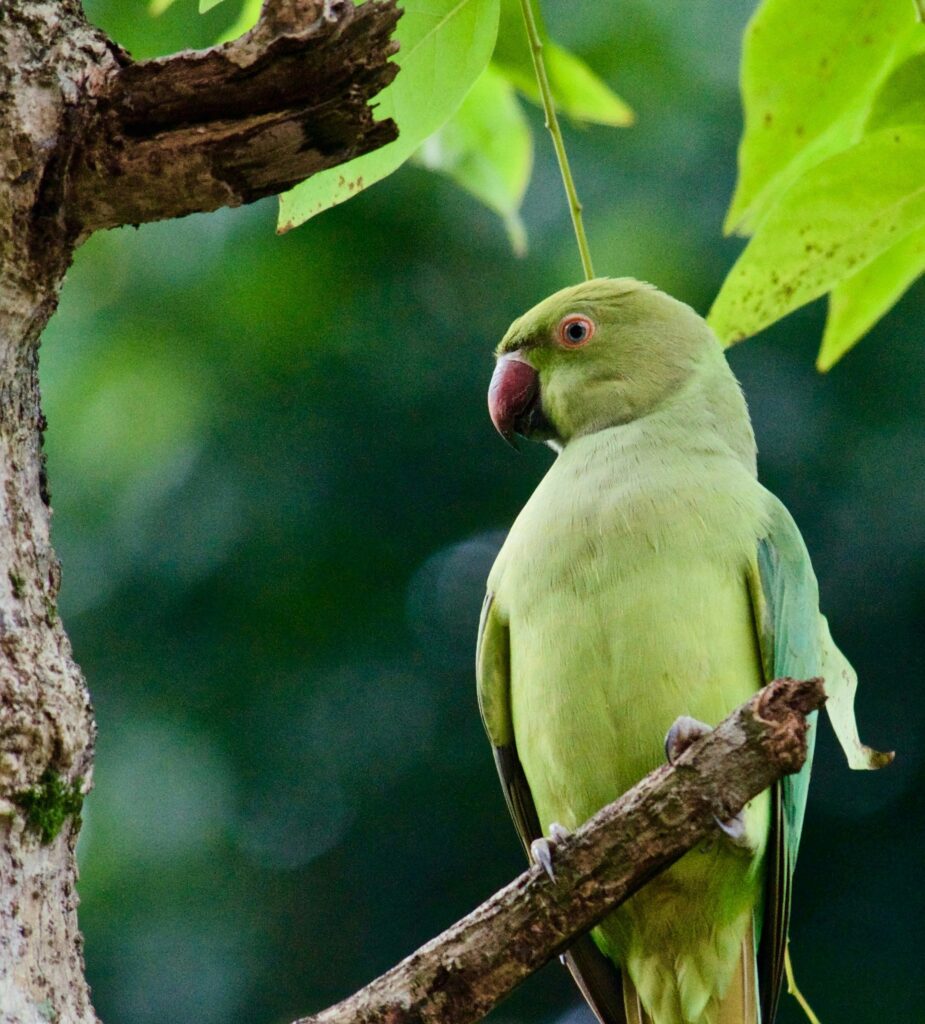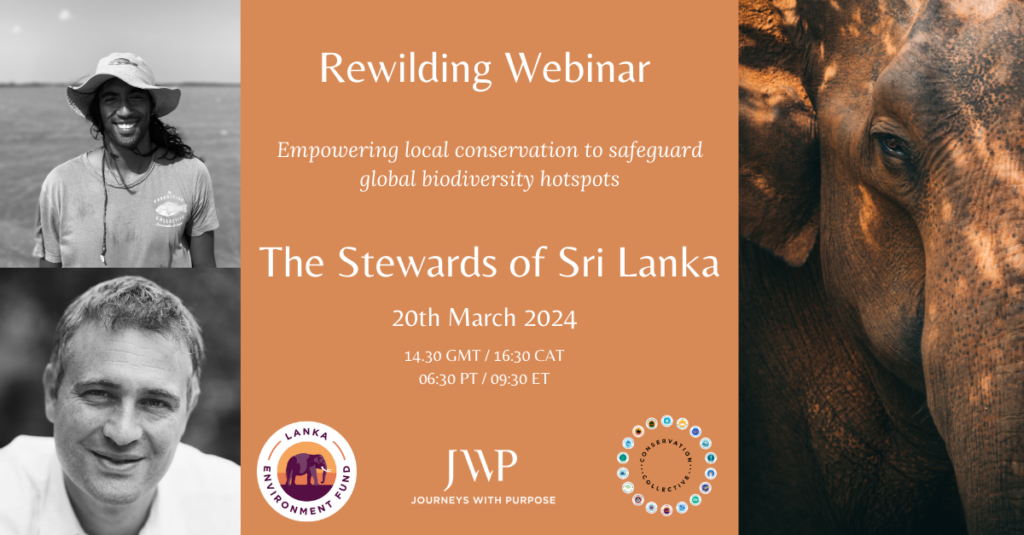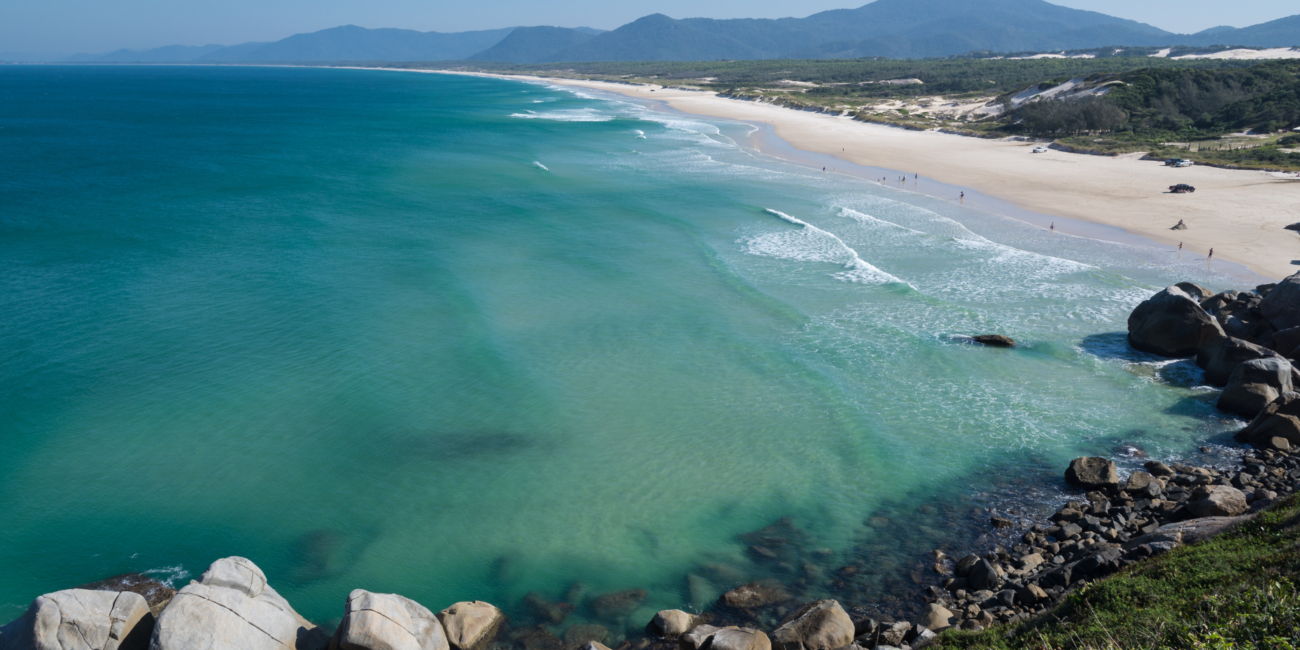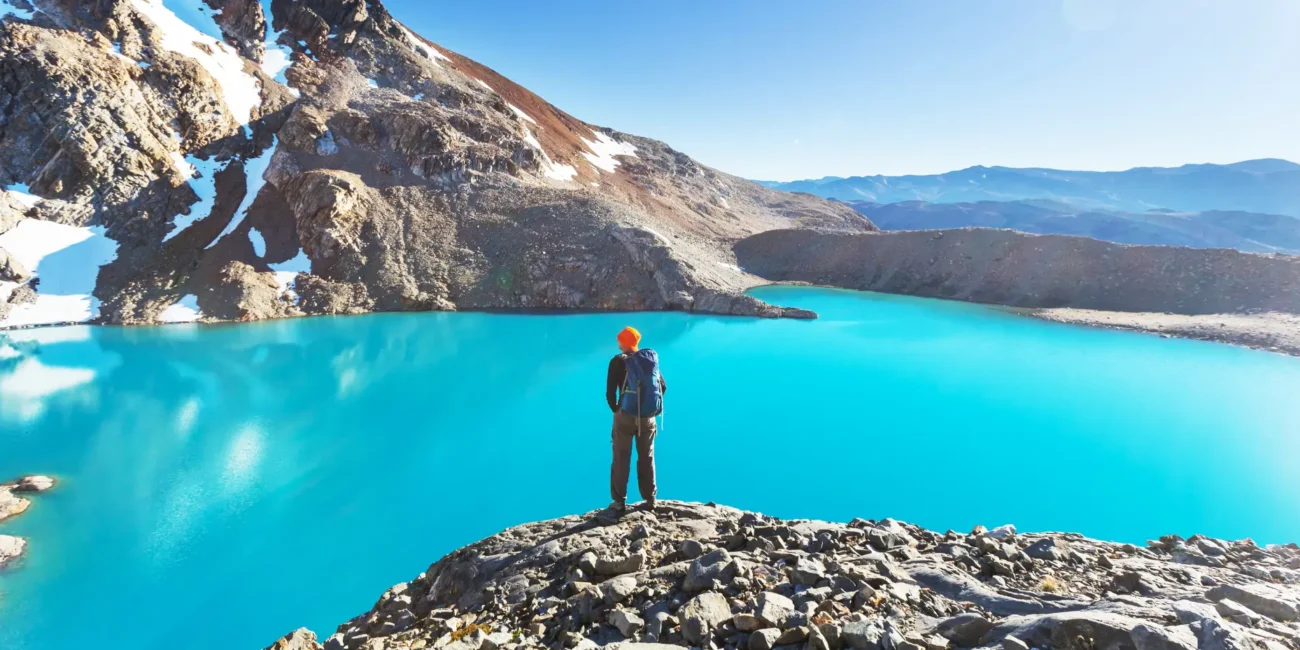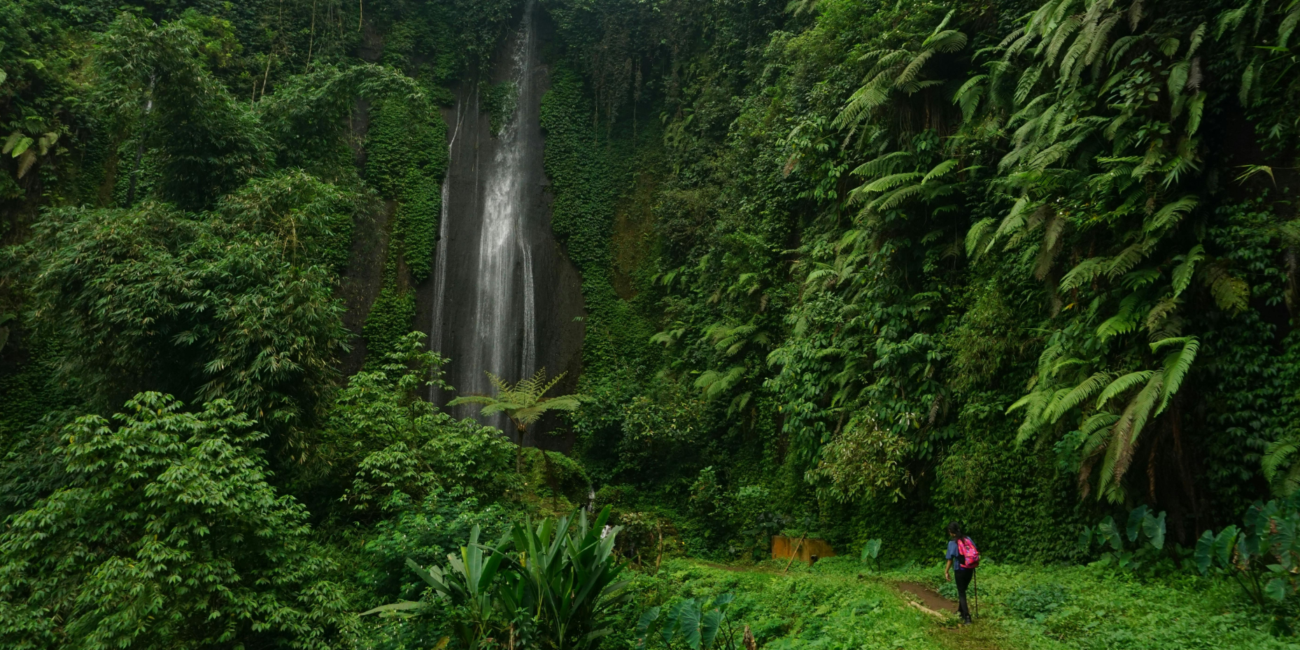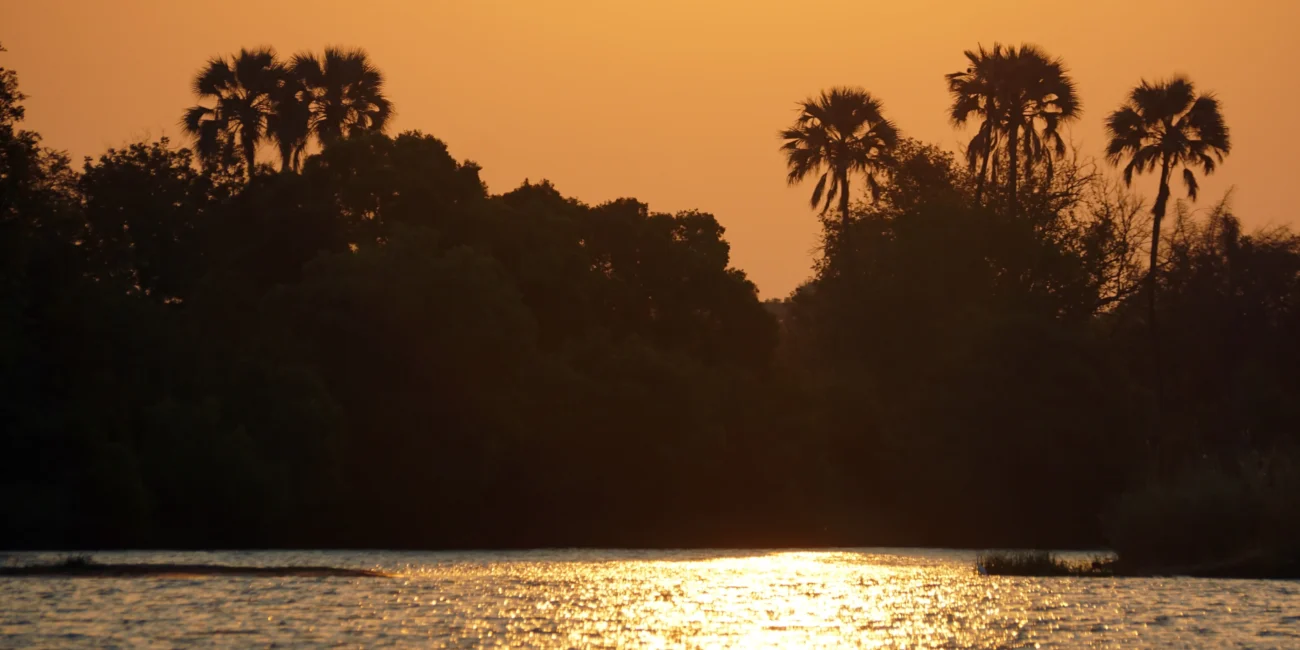What we learnt in conversation with Vinod, Ben & Daisy
In a recent conversation with Vinod Malwatte, Director of Lanka Environment Fund, chairperson of the organisation, Daisy Honeybunn, and Founder of Conservation Collective, Ben Goldsmith, we had the opportunity to dig a little deeper into Sri Lanka’s conservation, history, and Vinod’s own involvement in scaling local rewilding initiatives working to protect the biodiversity of Sri Lanka’s flora and fauna.
Discussing the challenges Sri Lanka and Lanka Environment Fund face, the inspiration Vinod’s learned from, and the milestones he’s most proud of, this interview shines a light on hope in the face of adversity, spotlighting the vast ecological wealth Sri Lanka harbours, to be protected and cherished.
Between 25th November – 1st December 2024, we will lead a small group to engage with Sri Lanka’s conservation efforts alongside Ben and Vinod firsthand. Keep reading to learn more!
Travel can inspire stewardship of the natural planet
The inspiration for Vinod’s work in conservation stemmed from a young age from his parents. Growing up in Sri Lanka they instilled the need for him to know his country and travel extensively locally. These travels in his childhood inspired him to develop his passion in the conservation field because he really understood the richness and biodiversity present in Sri Lanka. This knowledge was the catalyst for moving his career to conservation.
You can encounter many ecosystems during a journey through Sri Lanka
According to Vinod, what really sets Sri Lanka apart is its small size. Within the course of a day you can go from the coastline where you can see the world’s largest marine mammal, the blue whale, to the dryzone jungles where you can see the largest terrestrial mammal, the elephant. On the way through you will also see a diversity of ecosystems packed into one country such as wet zone forests and tropical montane forests in the hill country. For a small country, there is no doubt that Sri Lanka offers a big trip!
Sri Lanka created the world’s first designated wildlife sanctuary
Sri Lanka is responsible for the world’s first designated wildlife sanctuary, dating back to the 3rd Century BC when Buddhism was brought to the country by the Buddhist monk “Mahinda” who proclaimed that all creatures have an equal right to life, and King Devanampiyatissa called for the cessation of harm to wildlife and trees, creating the Mihintale Wildlife Sanctuary. Centuries of living largely harmoniously alongside wildlife, combined with Sri Lanka’s multicultural tapestry, has created a spiritual and cultural coexistence between humans and wildlife in Sri Lanka.
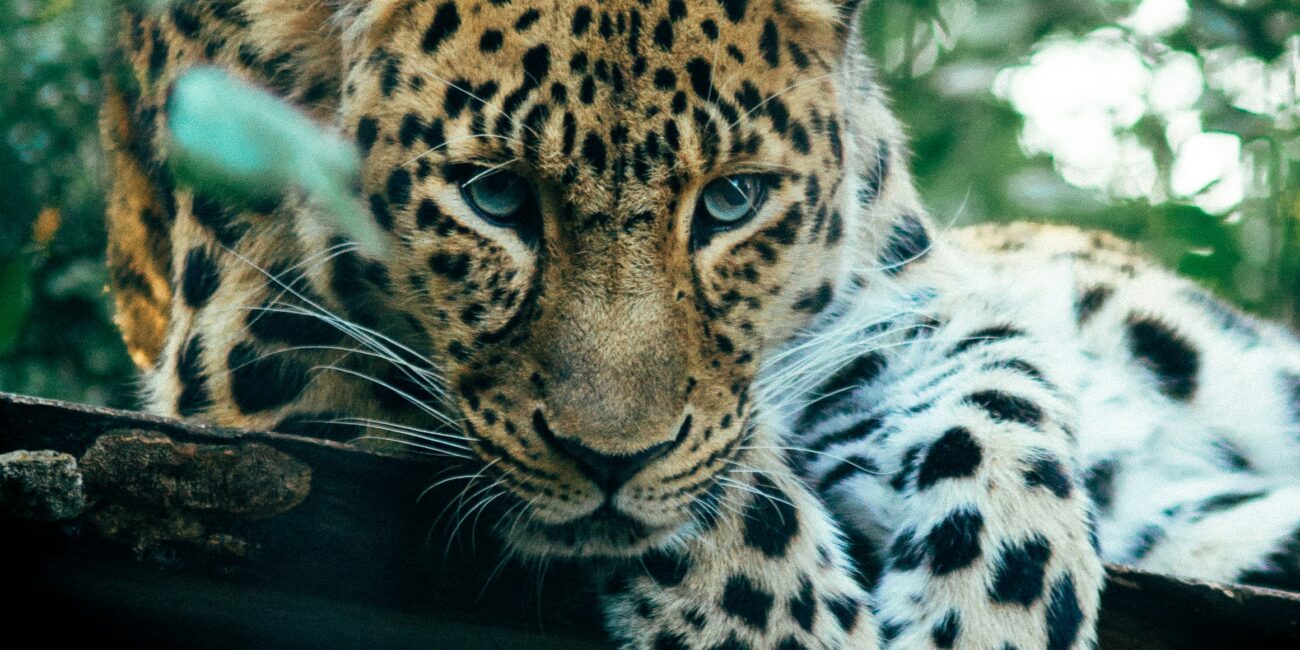
Local communities must always be considered in pursuit of conservation and biodiversity protection initiatives
Vinod is very proud of the work Lanka Environment Fund has done in the hill country, specifically in the central highlands with their Corridors For Conservation project. He considers establishing two new biodiversity corridors within this highly fragmented landscape to be a real conservation win for Sri Lanka.
“Navigating the land ownership as well as the estate communities’ needs and marrying those together with the biodiversity that moves through that landscape has been phenomenal and something we’re very proud of.
The challenges we’ve faced within the rewilding space have mainly been dealing with the weather conditions in the central highlands, as the wind can make it difficult for saplings to grow. The sourcing of saplings can also tend to be a little difficult but these are things we are looking to overcome and we’re working on the rewilding and assisted regeneration of this landscape.”
Context-specific conservation efforts are often more powerful than ‘one resolution’
Vinod believes that, given the diversity of ecosystems in Sri Lanka, there is no one conservation intervention that can be worked towards, but that the solution lies more in bettering the understanding of what is needed in that locality and creating context-specific conservation interventions accordingly.
“Socio-political war, whilst devastating, has helped the natural world. Now we must act to continue to halt the encroachment on nature and crystallise our gains.”
Lanka Environment Fund’s Plan involves ‘education, education, education’
“Our plans involve education and innovation. During times of humanitarian crises, the first type of funding to drop off is normally for the environment. Anjali Watson (Sri Lankan conservationist and Whitley Award for Nature winner who will join our group in November) is a great advocate and we’ve learnt there can be no environmental project without also creating a development project.
We have had particular success providing education to the people and communities living alongside the wildlife to help create longer-term thinking, in highlighting how wildlife in the area will benefit them long term.
Rewilding doesn’t happen overnight. We need continuity. Sri Lanka is building a long-term vision.“
We can learn from our rewilding successes
The Lanka Environment Fund’s habitat restoration work in Wasgamuwa National Park has been very successful – and this manual removal method, together with the local communities, has now been upscaled and established in multiple locations within the National park.
Several of Sri Lanka’s national parks have been engulfed by invasive aquatic species so Lanka Environment Fund is working to use their learnings from Wasgamuwa and scale it them in order to restore these similar habitats in parks across across the country.
Their vision aims to create optimal ecosystems within the parks, allowing animals to thrive – in turn reducing the need for them to venture out into surrounding communities around the parks – and in turn return the potential of human-wildlife conflict.
Our journey to Sri Lanka will offer authentic insight into this rich country
Our Journey to Sri Lanka (25th November – 1st December 2024) will be hosted by Vinod Malwatte and Ben Goldsmith. Exploring the myriad terrain, we will travel on local roads to immerse ourselves in the country’s wild, authentic landscapes.
With the opportunity to discover all of Sri Lanka’s endemic species in one of the world’s 36 biodiversity hotspots, we are sure to encounter unparalleled wildlife found no where else in the world whilst contributing to their protection and recovery.
To hear the full conversation with Vinod, Ben and Daisy and engage in the discussion of how best to scale local rewilding initiatives, watch our Fireside Chat with the Stewards of Sri Lanka, hosted on World Rewilding Day, below.
